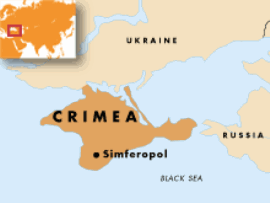When the Nabucco Intergovernmental Agreement (IGA) was signed in Ankara on July 13, much euphoria was created in the media, especially in Turkey. It was reported that Turkey and the European Union, in a cooperative deal on energy, had jointly scored a big victory. While a claim of victory may well be justified for the EU, the verdict for Turkey is less flattering.
What is in Nabucco?
Nabucco is a gas pipeline project designed primarily to ship Caspian and Middle East natural gas to Europe across Turkey, reducing Europe’s dependence on Russian gas. It will serve as the fourth artery bringing gas into the European Union. It will also enable the EU to avoid or minimize transit-country risk of the type it experienced with Ukraine.
Officially started in 2002, the pipeline is estimated to cost 7.9 billion Euros to build and have a maximum capacity of 31 billion m3/year. The pipeline will run from the eastern and southeastern border of Turkey and terminate at Baumgarten, a natural gas hub in Austria. The total pipeline length is 3,300 km-2,000 km of which will be in the Turkish territory. Construction is foreseen to start in 2011, with first gas flow in 2014. The project duration is 25 years.
The project is being developed by a consortium (Nabucco International Company, or NIC) formed by six companies each from Turkey, Bulgaria, Romania, Hungary, Austria and Germany. The consortium is seated in Vienna. All six partners have an equal 1/6 share in the enterprise. BOTAŞ, the partner on Turkey’s side, will carry 1.3 billion Euros of the total construction cost. Five Nabucco National Companies, owned by the NIC, will handle construction and operation of the pipeline in transit countries.
Thirty percent of financing will be met from NIC’s internal (equity) resources and the remaining 70% from the credit market.
Potential suppliers of gas include Azerbaijan, Iraq, Iran, Turkmenistan, Egypt, Kazakhstan and Russia. But none of these countries has yet committed to supply gas for the project.
The NIC will generate income by trading gas transport capacity through a tender process. It is estimated that 64% of the transport capacity would be marketed in Turkey. Fifty percent of the the rest to the partners and third parties.
The intergovernmental agreement (IGA) signed in Ankara on July 13 commits the signatory governments to give full political support for the implementation of the project. The IGA is valid for 50 years.
The hassle ahead: Gas supply
A major hassle for the Nabucco partners will be supply of gas. Among the potential suppliers of gas, Azerbaijan, through its Shah Deniz-2 gas, was initially the most likely candidate to supply the start-up gas (some 8 billion m3/year). But after the SOCOR-GAZPROM agreement signed at the end of June in Baku, Azerbaijani input cannot be counted on.
Azerbaijan’s president Ilham Aliyev practically pulled the plug on the Shah Deniz-2 gas after Turkey entered into secret negotiations with Armenia on opening the Armenian-Turkish border. Aliyev, alarmed that the solution to the Nagorno-Karabakh problem could be side-stepped in the secret negotiations, showed his displeasure by signing a gas-supply contract with Russia. The agreement gives Russia’s GAZPROM priority in buying Shah Deniz-2 gas. The price is an attractive $350/1,000 m3.
Aliyev did not bother to attend the IGA signing ceremony in Ankara.
According to a post-discovery agreement (addendum to the PSA) signed by the Shah Deniz consortium members in 2001, Turkey is the preferred export market for Shah Deniz gas. If Shah Deniz-2 gas is shipped to Russia instead of Turkey, it will prompt calls for accountability in Turkey. Further, it will be a case of troubling irony if the same gas finds its way to the EU via South Stream.
The supply problem with the other potential supplier countries should also not be discounted. Iran, otherwise a very logical choice, is out of the supply equation for the foreseeable future because of political problems. Turkmen input first requires resolution of the Caspian maritime boundary dispute, and Russia is not expected to be cooperative in resolving this issue.
Separate from the boundary issue, considering its gas sale agreements with Russia, China and Iran (a deal to increase Turkmen gas export to Iran to 14 billion m3/year was recently signed), Turkmenistan may not have sufficient developed gas resources to supply a significant volume of gas for Nabucco.
Russia, eager to promote its rival South Stream project, is least interested to see Nabucco succeed. Russia may eventually supply gas to Nabucco, however, if South Stream, with its exorbitant price tag (19-24 billion Euros), fails, and the transit fee across Nabucco is favorable. After all, Russia will view favorably any route that bypasses Ukraine.
Offsetting its cost disadvantage, South Stream would have no throughput problem.
Kazakhstan, apart from the boundary dispute in the Caspian, is more inclined to sell its gas to Russia than to the West, and Egypt already has a running LNG system (3 LNG trains) to export its gas.
Currently, unassociated gas in a number of fields in northern Iraq is the most likely source for initial gas for Nabucco. (Iraq’s proven gas reserves are mostly tied up in oil fields in the south). Still, given Iraq’s fragile peace, and its urgent need for gas for domestic consumption, it is unlikely that any Iraqi gas will be reaching Nabucco soon.
Egyptian gas, via the Arab Gas Pipeline, is also a good bet, but the export volumes currently planned for this pipeline (2 billion m3/year by 2013) will have to be substantially increased to make a difference for Nabucco. That, too, will take time.
Of late, Qatari gas has also been mentioned in the Turkish media as a potential source for Nabucco. But at the moment this is a mere fantasy. The logical choice for exporting Qatari gas to Turkey, as well as to Europe, is via LNG.
The fact that no gas supply agreements have been concluded with producers will render financing of Nabucco problematic. Creditors will want to have some assurance to safeguard their investment. Even with the backing of the European Union and the United States, a pipeline with no assurance of throughput is sure to raise eyebrows in credit circles.
Another issue that may dampen creditors’ interest in Nabucco is a recent study by Cambridge Energy Research Associates that suggests that gas consumption in the EU could drop by 16% by 2020 and 35% by 2030.
The IGA does not oblige any of the participating countries to finance the Nabucco project or to accept financial liability in regard to the project, but some kind of host-country guarantee may eventually be needed. In any case, the 2011 construction start date and the 2014 first-gas target for the Nabucco project appear unrealistic.
An unfulfilled promise for Turkey
Notwithstanding the high-flying comments made by Turkish Prime Minister Recep Tayyip Erdoğan at the signing ceremony of the IGA, Nabucco is somewhat of a disappointment for Turkey.
A Nabucco-type project, enabling Turkey to be an east-west energy corridor, had long been a strategic vision for Turkey. The Baku-Tbilisi-Ceyhan (BTC) pipeline, bringing Azeri crude oil to Turkey’s Mediterranean coast, partially fulfilled this aspiration.
Next, would be a similar pipeline for natural gas. Gas imported from the Caspian region and the Middle East would meet Turkey’s gas needs, enable Turkey to engage in local and regional gas trade, and funnel excess gas to Europe via an east-west pipeline. This would enhance Turkey’s strategic role in the region, promote a vibrant domestic gas sector in the trade and flow of gas, and bring attendant economic benefits.
This was the long-held vision, written, re-written, and lectured about. Turkey was seen as the driver in the purchase, re-sale and transport of gas.
The Nabucco project does not fully fulfill this promise. Although the project raises Turkey’s strategic importance as an energy corridor, it reduces Turkey’s role to that of a passive transit country. Turkey’s ability to control the flow of gas across its territory, to secure its gas supply, and engage in gas trade, while still possible and expected, will be considerably curtailed by the project.
Nabucco is essentially an EU gas transport project, designed primarily to serve the EU’s interests by diversifying gas supply sources and routes. Meeting Turkey’s domestic gas needs and creating conditions favorable for local and regional gas trade will be incidental to the main goal. The enterprise will be managed from Vienna, with Turkey having a minor say in corporate decision making.
Surely, by geographic necessity, the pipeline’s major section and operations (60%) will be in Turkey, but this does not translate to Turkey being in the driver’s seat. Most significant, the eventuality of Turkey being a regional energy hub vis-à-vis gas trade with Europe has been largely relinquished to Baumgarten. (Admittedly, Turkey’s existing gas storage capacity, being highly limited, is a disadvantage in this respect).
Economically, gas trade is generally far more profitable than engaging in gas transport. It also gives greater leverage to the host country to deliver gas at competitive prices to its consumers.
The issue of gas supply
Before the signing of the IGA, there were widespread media reports that Turkey had initially demanded to reserve (at netback price) 15% of the pipeline’s throughput for its own needs, and that this demand had been rejected by the consortium. Considering the scope of the IGA, however – unless the original scope was different – this seems to have been pure speculation. For within the context of the IGA, such a request is meaningless.
Although Turkey’s Energy Minister Taner Yıldız has stated in the press that each of the transit countries hosting the Nabucco pipeline has the right to take 50% of the throughput for its own need, and that this is “even better than the 15% provision,” there is no such provision in the IGA.
Regarding gas supply security, a nebulous “reverse flow” clause was included in the IGA, evidently at the last minute to mollify Turkey. A “reverse flow” contingency does not yet exist even within the EU, and a proposal to this effect was introduced in July by the European Council. The member states will give their opinions by the end of September 2010. Whether the proposal will be accepted (many EU countries are reluctant to cede control of their energy supply), and how it will function, is unclear. Even if the proposal gets a green light, there will certainly be restrictions and extra cost.
“Reverse flow” is an emergency provision Turkey should not rely on for its domestic gas needs.
In fact, Nabucco is not a project about gas supply at all. The IGA contains no provision as to gas supply. It is solely about financing, construction and operation of a pipeline. Purchase and supply of gas from producer countries is left to others, i.e., third-party enterprises of Turkish or foreign origin.
Stiff competition
Turkish companies, i.e., BOTAŞ, but also private-sector players such as Koç Group, Sabancı Group, Zorlu Group, will no doubt want to conclude gas purchase agreements with the suppliers and engage in local and regional gas trade. But the extent to which they will compete in such efforts with EU-backed companies that will enter the race, is a question mark.
Interestingly, in bidding for 50% of the transport capacity reserved for the partners in Turkey, BOTAŞ will also compete with the other partners. Until recently, BOTAŞ held virtual monopoly in Turkey in purchase, import and transport of gas.
One EU-backed company, the Caspian Development Corporation, created by the European Commission, is actively pursuing Turkmen gas for the Nabucco project. Another, the German firm RWE, has recently secured an upstream project offshore Turkmenistan, evidently with an eye to prove up new gas reserves for Nabucco.
Eventually, Turkish firms may find the competition less daunting if they team up with foreign firms.
State coffers, and more
According to the IGA, Turkey will not be able to impose transit fees or levy corporate income tax of its own as regards Nabucco. Instead, Turkey will receive “tax” revenues (similar to royalty) as determined by a separate agreement among the partners.
It is estimated that Turkey’s “tax” entitlement, out of a total 7.8 billion Euros, would be 4.2 billion Euros. This is a nominal amount to be received over 25 years. Because most of the revenues would be generated in later years, and assuming 3% annual inflation for the Euro, in present value terms this would correspond to approximately 2 billion Euros.
The tendering procedures the NIC will follow in capacity trade and its tariff methodology will be exempt from the regulatory jurisdiction of Turkey’s Energy Market Regulatory Authority (EMRA). (In both respects, the NIC has received exemption from the regulatory directives of the EU). Turkey will also help the NIC to acquire land rights in Turkey.
These are concessions rarely, if at all, accorded to companies, native or foreign, in Turkey.
Finally, considering Turkey’s Gas Market Law no. 4646, it is difficult to see how BOTAŞ would function as envisioned in the IGA. New legislation will be required to overcome the difficulty.
The euphoria expressed in the media, and in circles close to the government in Turkey, after the signing of the Nabucco IGA is overblown. Nabucco is primarily a project to serve the EU’s interests. It will allow the EU to reduce its dependence on Russian gas through direct access to the hydrocarbon (gas) resources to the east and southeast of Turkey. The enterprise (NIC) running the project will be directed from Vienna and have a privileged status in Turkey.
Although the project enhances Turkey’s strategic role in the region, in many respects it does not fulfill the promise such a project was originally conceived to deliver. In particular, Turkey will have a limited role in controlling the transport of gas in its territory, in securing its gas supply, and in engaging in gas trade. Considering its geographic location, Turkey had better alternatives.
There is little doubt that Turkey’s AKP government, eager to endear itself with the EU, decided to endorse Nabucco in its present form to advance its political agenda. But in return for what?
All the while the EU will continue keeping Turkey “safely” out of the Union for the foreseeable future. Even opening the energy chapter for Turkey’s accession negotiations is stalled indefinitely.
Turkey’s energy strategists have a long way to go to master their trade. Political cronyism unfortunately does not always advance the cause of national interests.
Ferruh Demirmen, Ph.D., is an independent oil and gas expert. He may be contacted at [email protected].
 Tatar children dance at a celebration of the 60th anniversary of Tatar immigration to Australia in Adelaide.
Tatar children dance at a celebration of the 60th anniversary of Tatar immigration to Australia in Adelaide.






 Mustafa Dzhemilev (center) said he knows from diplomatic sources about FSB plans to have him killed.
Mustafa Dzhemilev (center) said he knows from diplomatic sources about FSB plans to have him killed.
